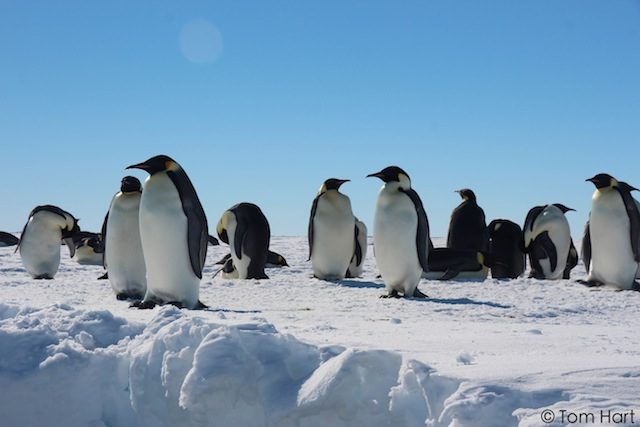SUMMARY
This is AI generated summarization, which may have errors. For context, always refer to the full article.

SYDNEY, Australia – Antarctica’s Ross Sea has been a rare safe haven for emperor penguins for thousands of years, even when temperatures were too harsh for their liking, a study released Monday, March 2, suggests.
Researchers looking at how climatic changes have affected the highly cold-adapted penguin – the tallest and heaviest of all penguin species – over the last 30,000 years suggest that only 3 populations survived the last ice age.
Conditions were so severe that the number of emperor penguins numbers on the frozen continent were 7 times less than they are today and in many fewer locations, said joint lead researcher Jane Younger.
“We hadn’t really thought about the fact that it would be too cold for them in the past,” Younger, a PhD student at the University of Tasmania, told Agence France-Presse.
“They live through life in -30ºC (-22ºF) now so they are pretty cold adapted.”
By examining the genetic diversity of modern and ancient penguin populations, scientists from the universities of Tasmania, Southampton and Oxford in Britain, and the Australian Antarctic Division were able to estimate their numbers over time.
They found that numbers began increasing over the last 12,000 years when temperatures rose by an average of about 15 degrees Celsius and as the amount of sea ice around Antarctica began to reduce.
Younger said the warmer temperatures likely gave penguin chicks a better chance of surviving the winter – when temperatures would have dropped to -45ºC.
A reduction in sea ice gave would have allowed them easier access to the open ocean to feed.
“We were actually really surprised by this. What we had thought was that the ice age, because there was so much more sea ice which they need (to breed) and because they are so cold-adapted, that this would probably be a good thing for them,” she said.
The researchers believe a population survived in the Ross Sea region because an area of ocean was always kept free of sea ice by wind and currents, according to the study published in Global Change Biology.
“The Ross Sea is probably really important,” said Younger of the area on the Pacific Ocean side of Antarctica which is considered the world’s most intact marine ecosystem.
“They have survived there for at least the last 30,000 years and even when the environment has been really unsuitable in a lot of other places the Ross Sea has been kind of a safe haven for them.
“The Ross Sea seems to come up time and time again as a really important part of the Antarctic ecosystem.” – Rappler.com
Add a comment
How does this make you feel?
There are no comments yet. Add your comment to start the conversation.